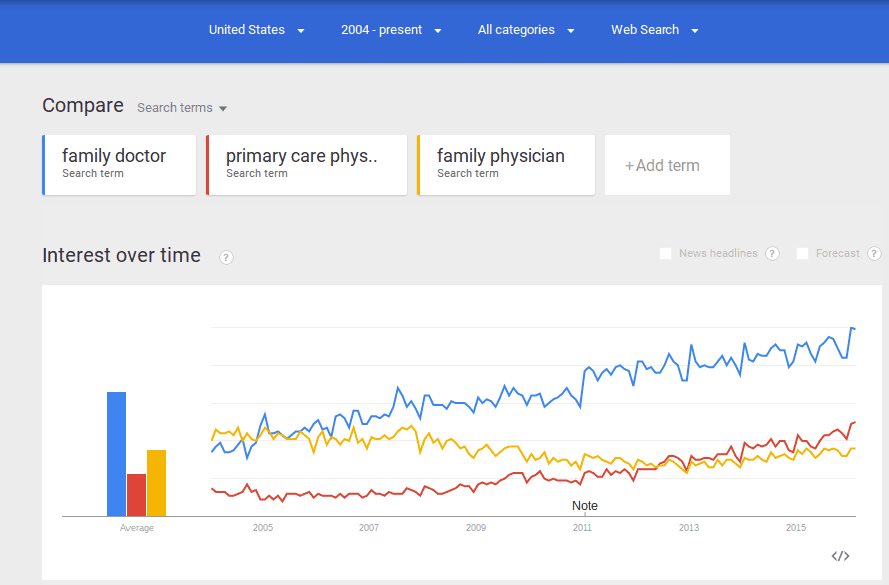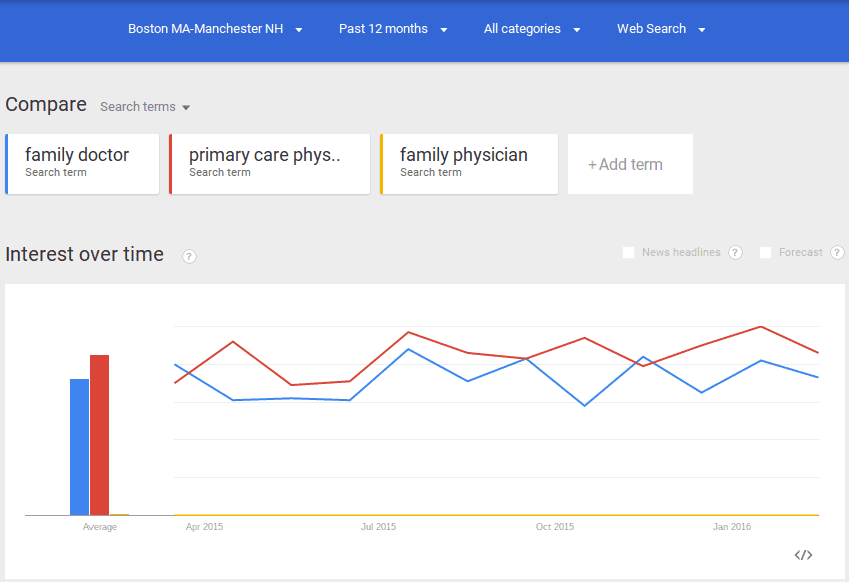Is your local target audience finding you when they search online? If you are using the wrong keywords within your content (Headlines, Paragraphs, URL, Blogs, etc.), then there is a good chance your business is not being found. The question then becomes, how do you know what the right keywords are? Answer: Keyword Research.
Scenario: You are a doctor looking to acquire new patients.
People across the US are searching for doctors, but everyone doesn’t use the same keywords to search. We ran “family doctor”, “primary care physician”, and “family physician” through Google Trends (see image below.)

Clearly “family doctor” is the most searched, but this is at a nationwide level. For doctors and other health care providers with a physical location, it is crucial to look at your specific location when doing research. While most cities across the nation will closely resemble what is shown above there are some cities that will be drastically different. For example here is the last 12 months worth of searches for the same terms in the Boston area.

While “family doctor” remains high, it is surpassed by “primary care physician.” When writing for your target audience, make sure that you are using terms that they are familiar with and use. Having these terms inside headers, context, and links throughout your website will help users find, understand and engage with your site.
Hopefully, Google Trends will help you identify what keywords your local audience is searching and would help boost your website’s visibility and performance. While search volume is a critical part of keyword research it is only the beginning.
